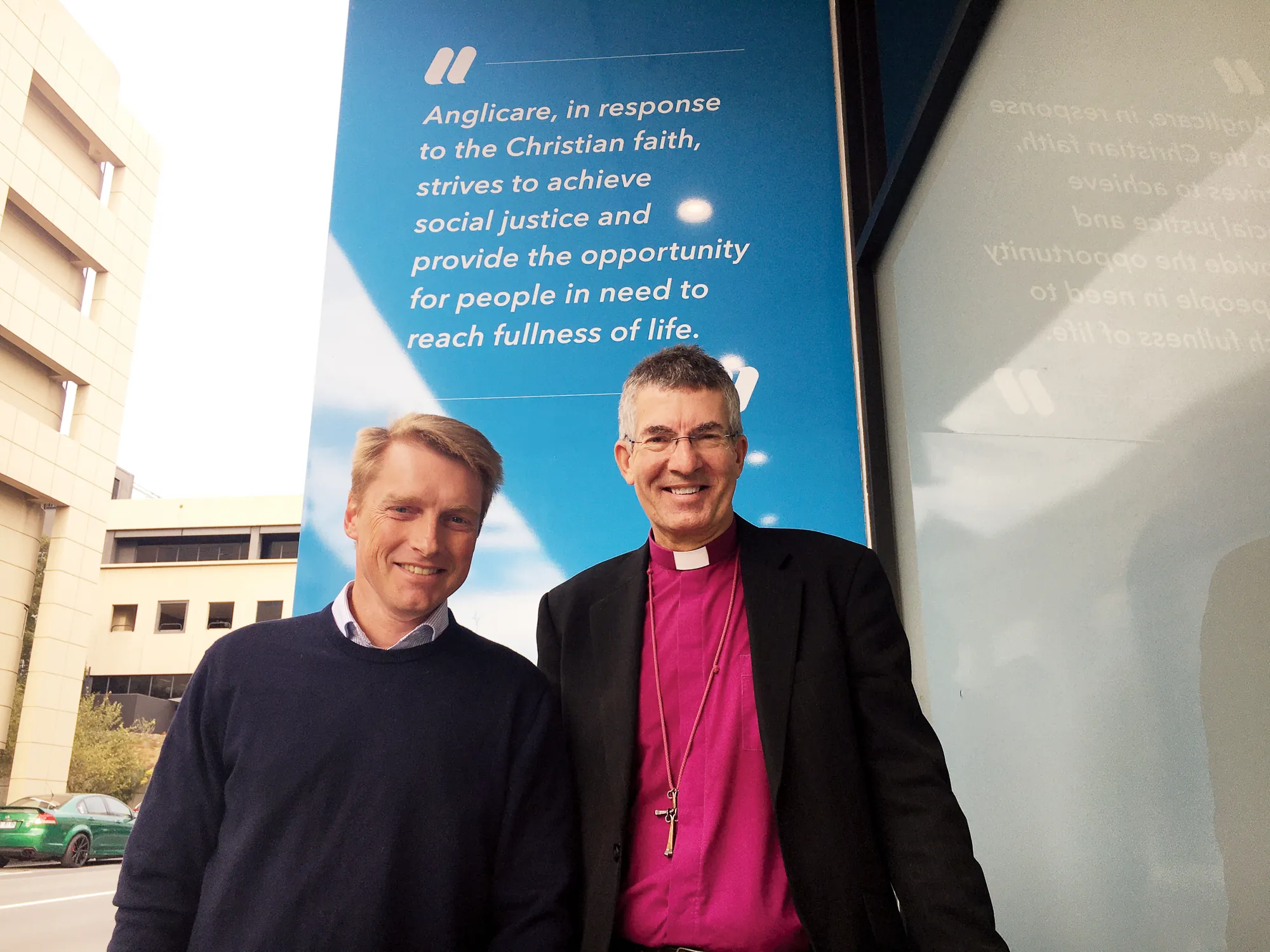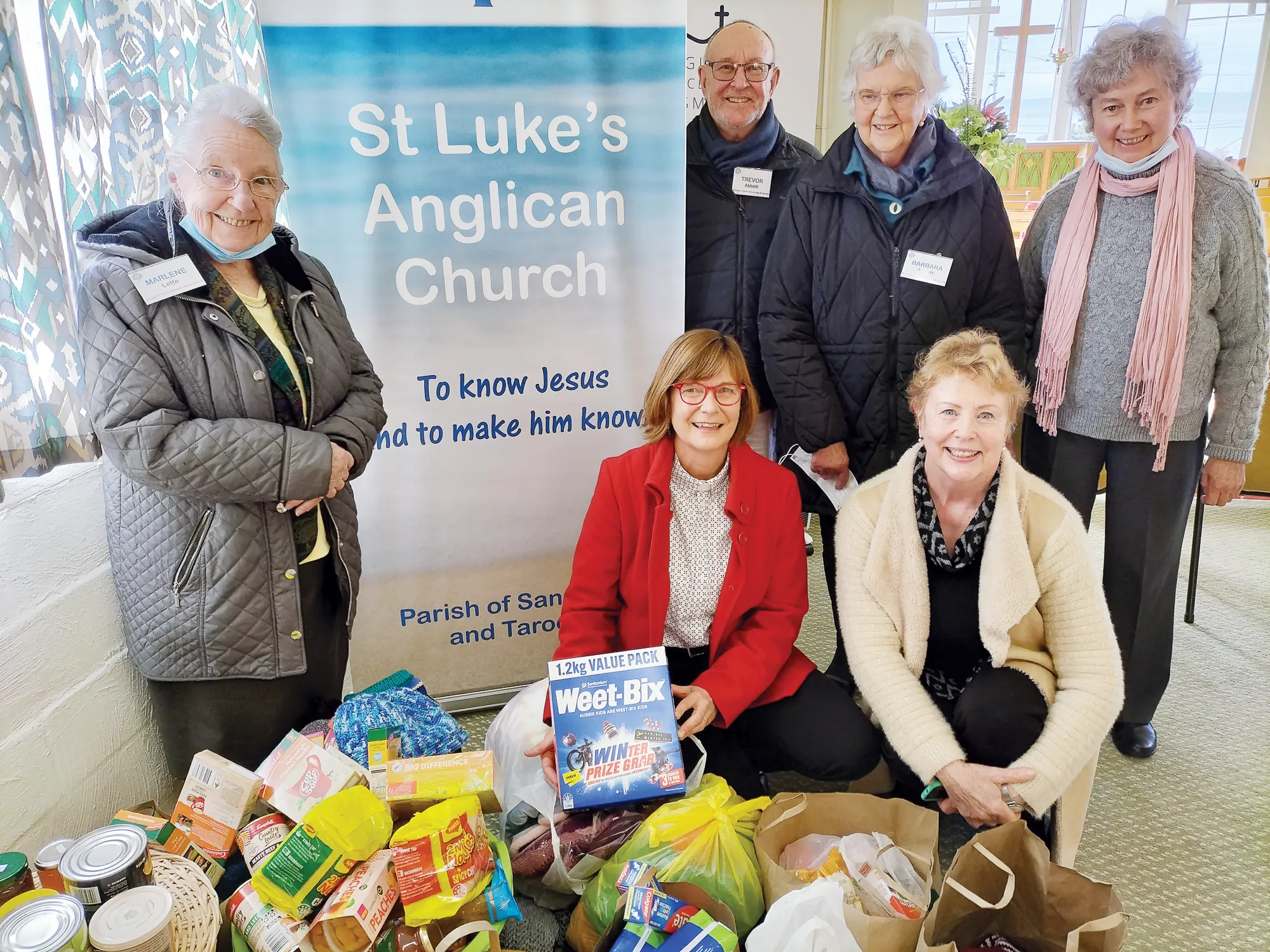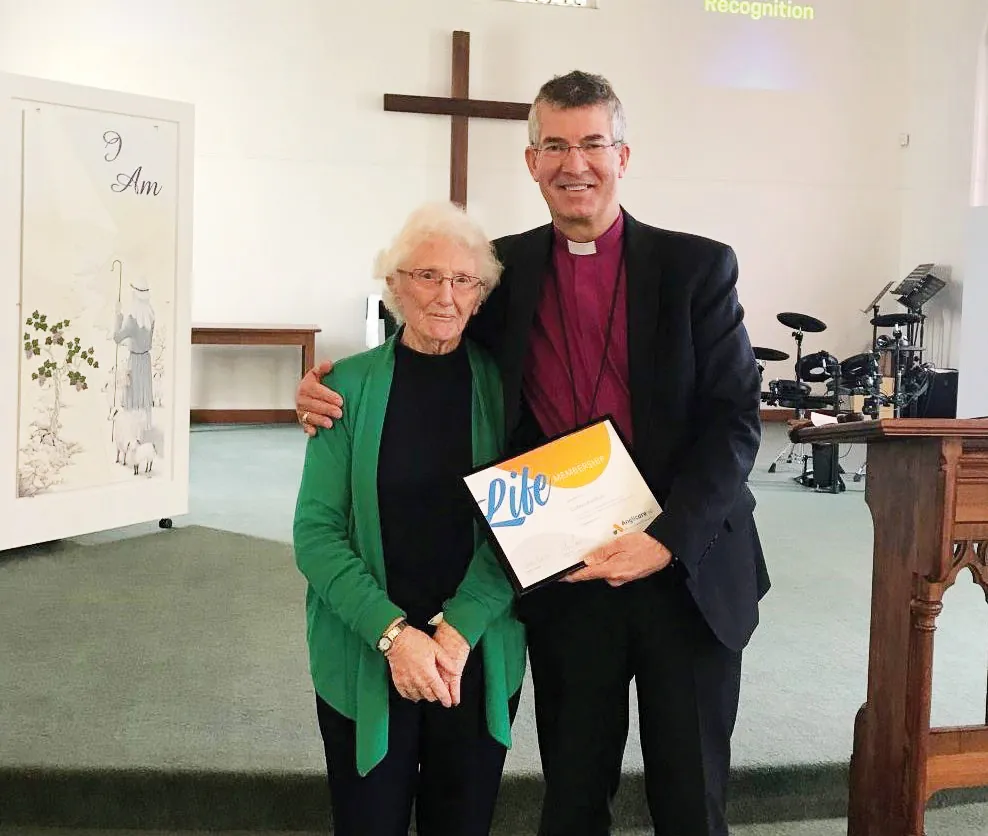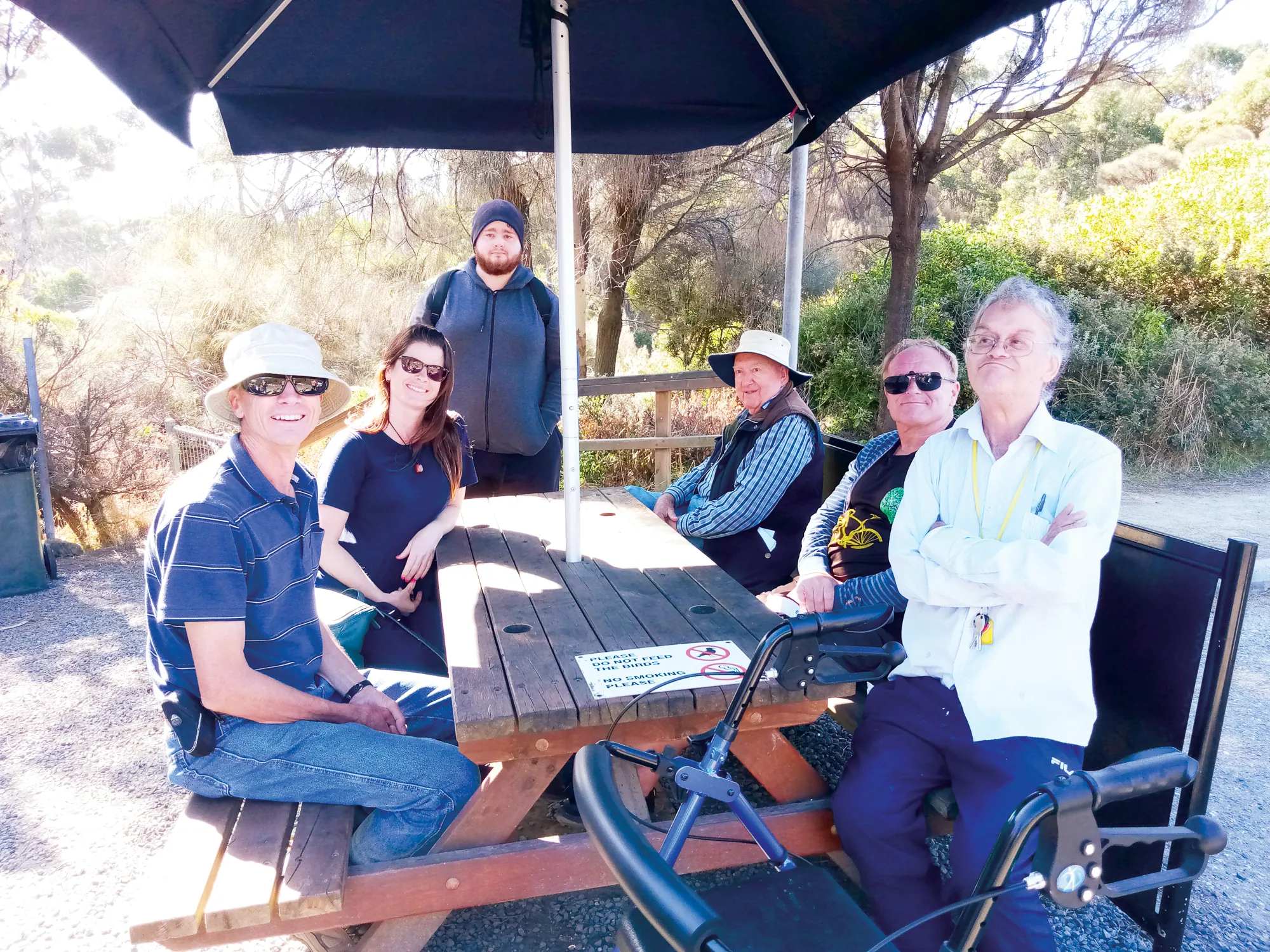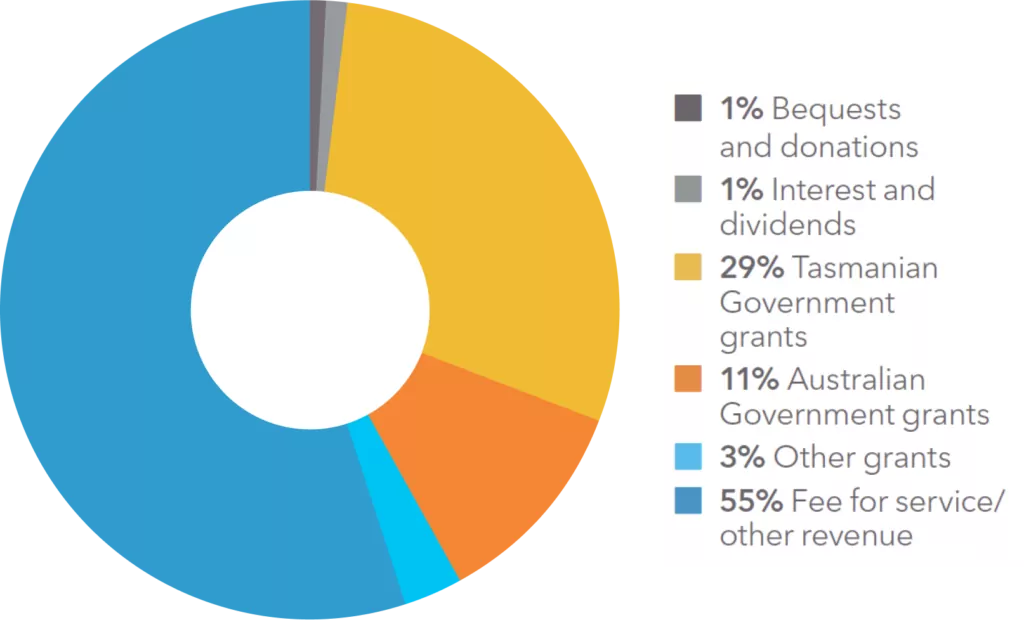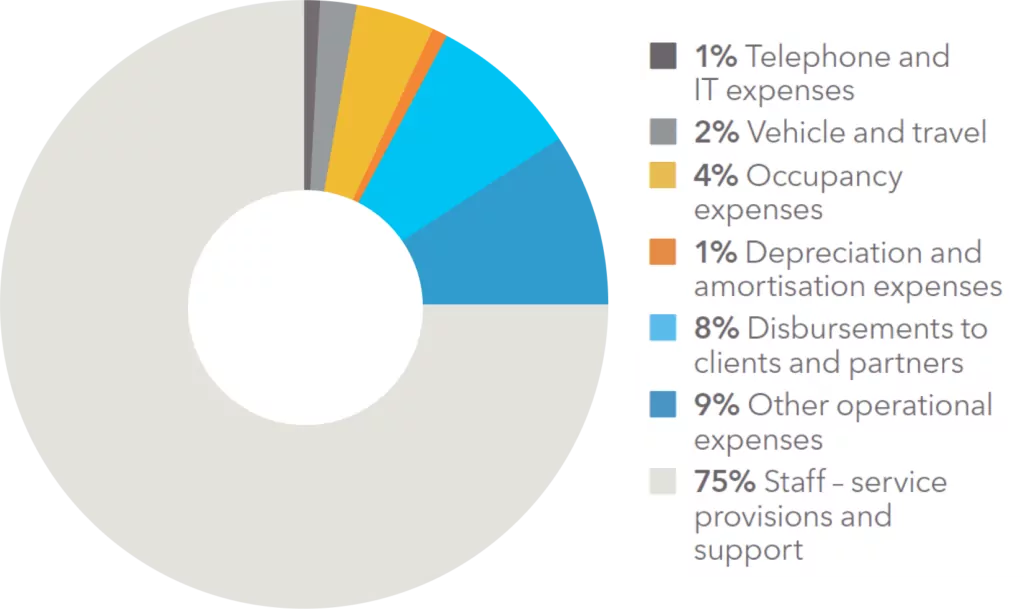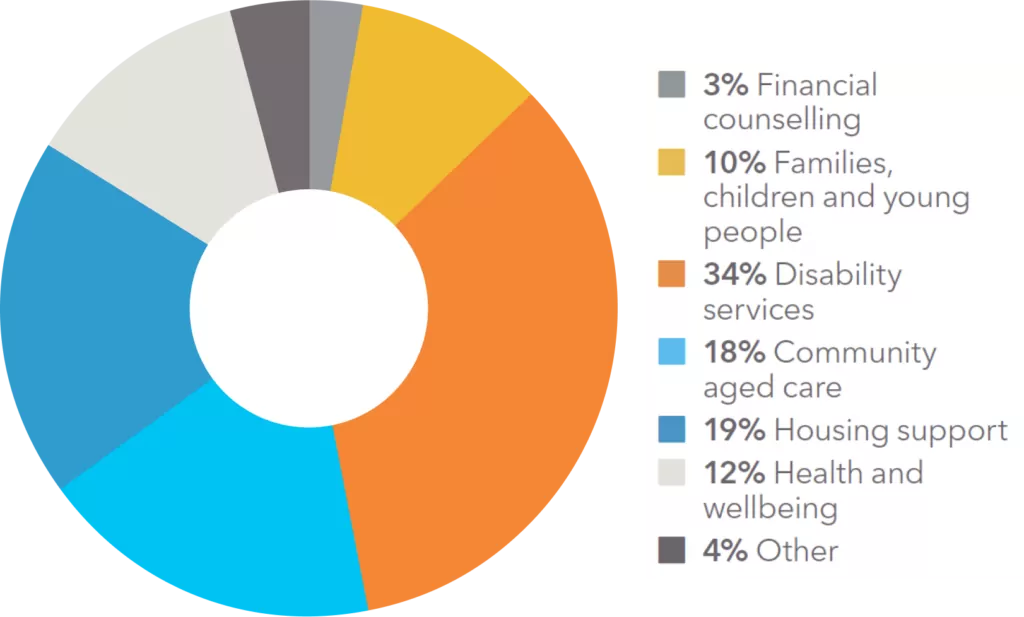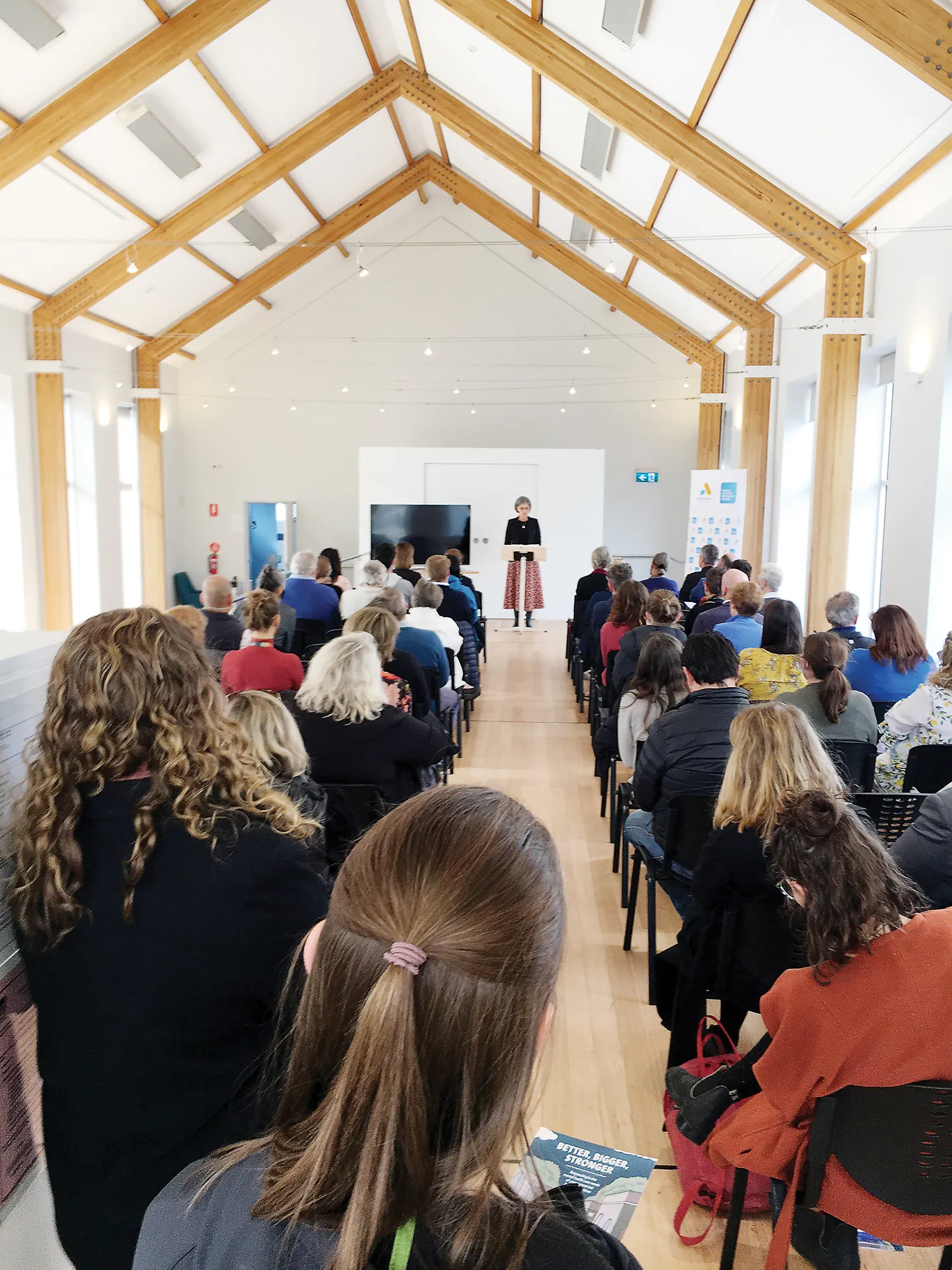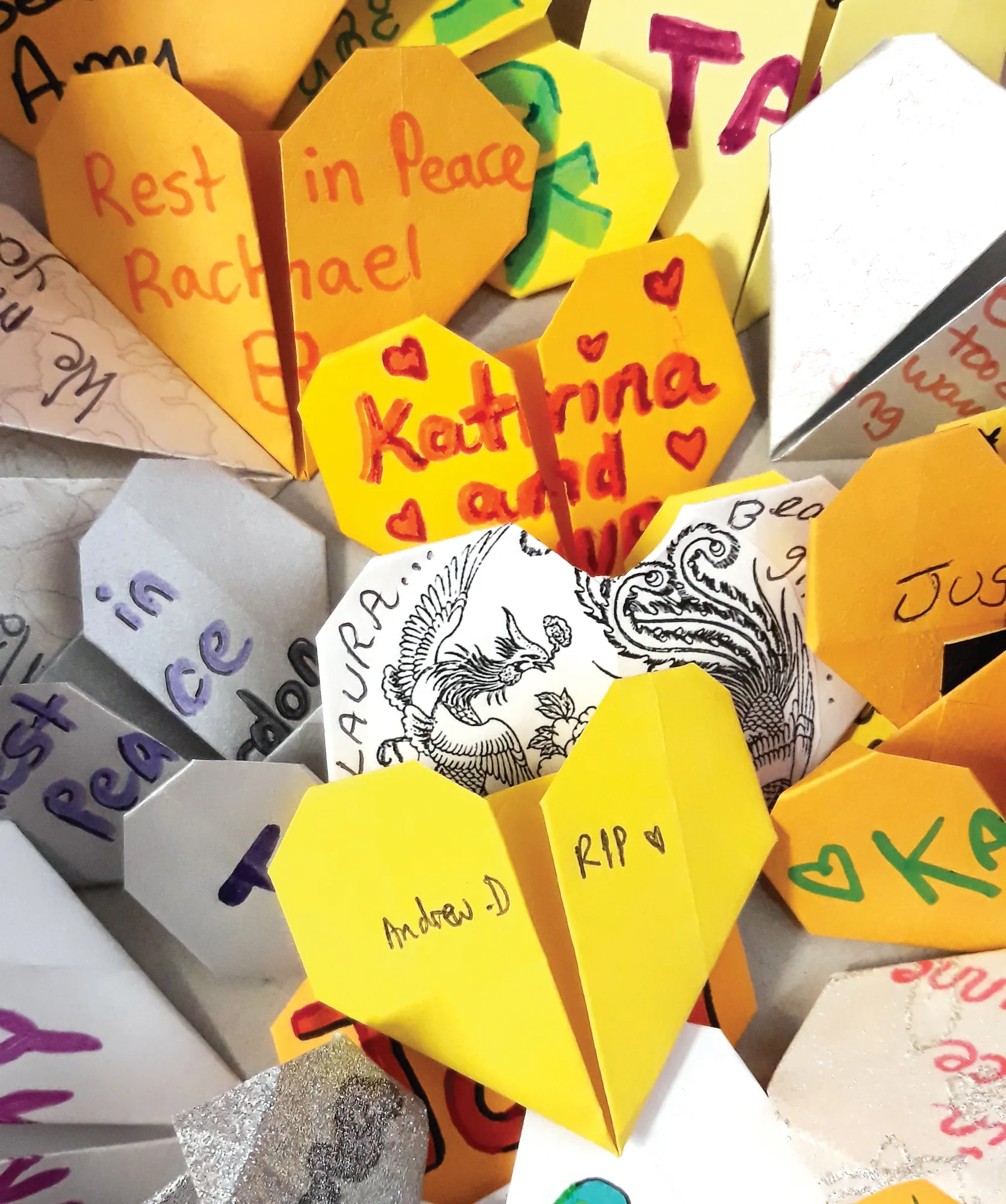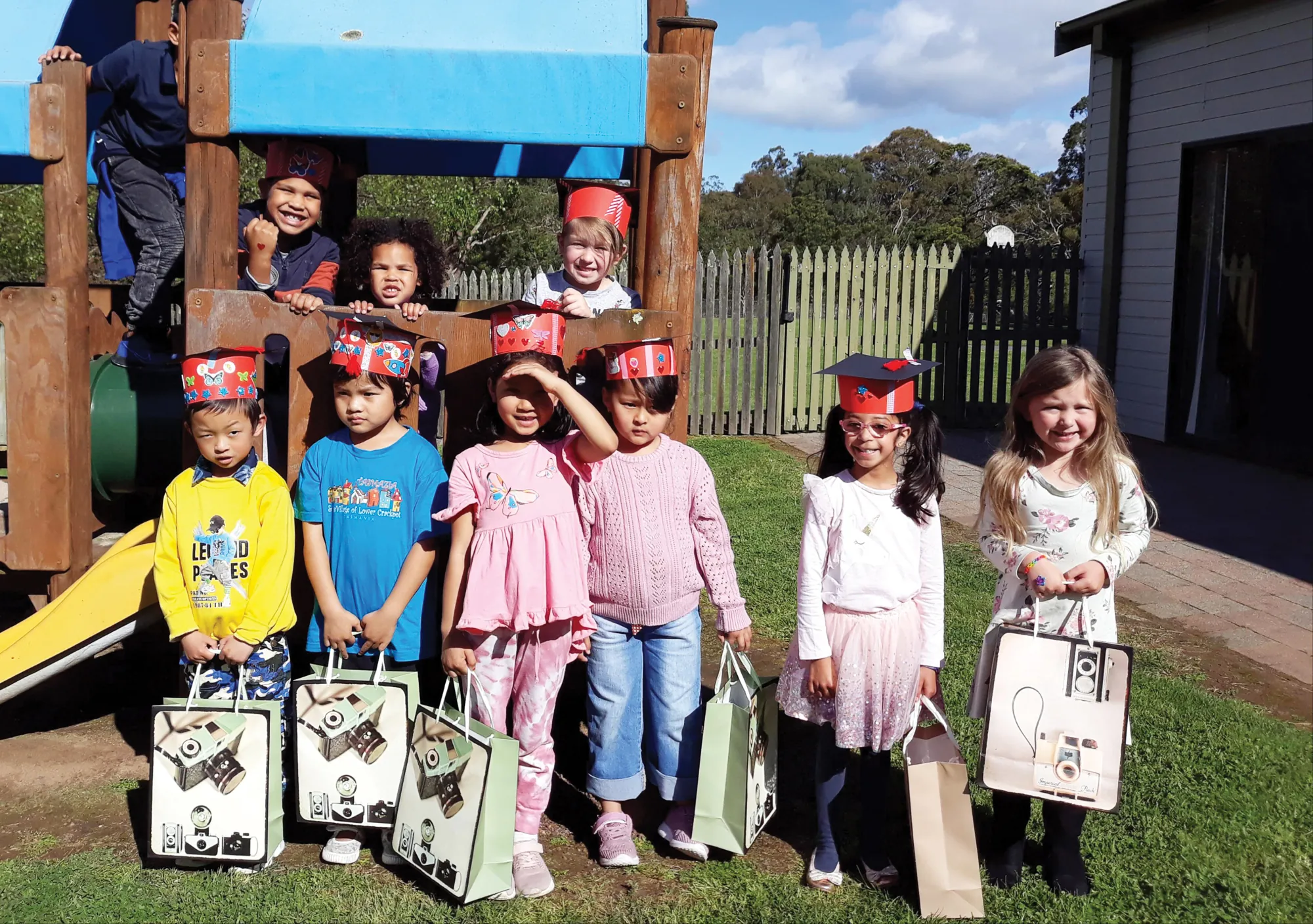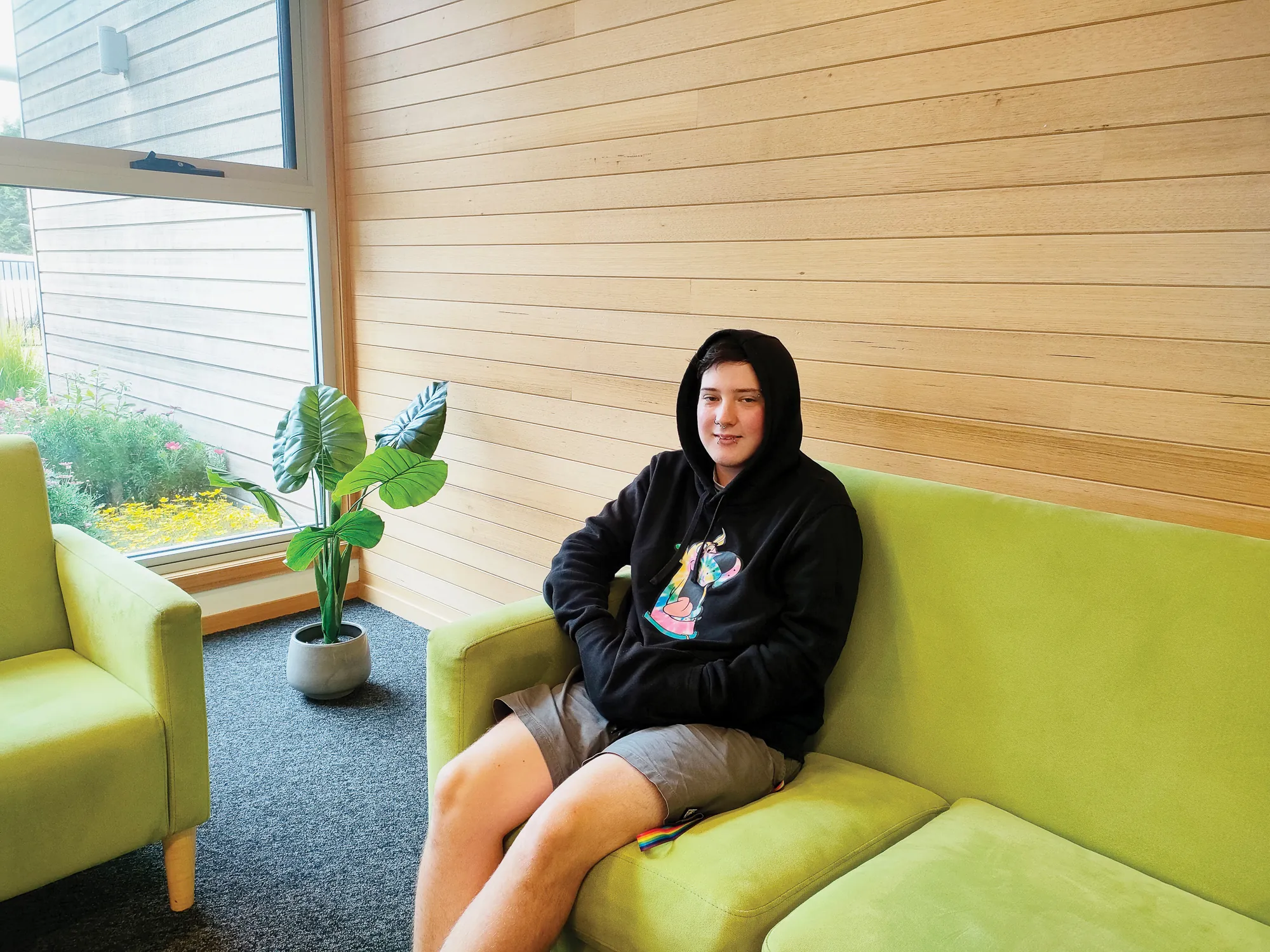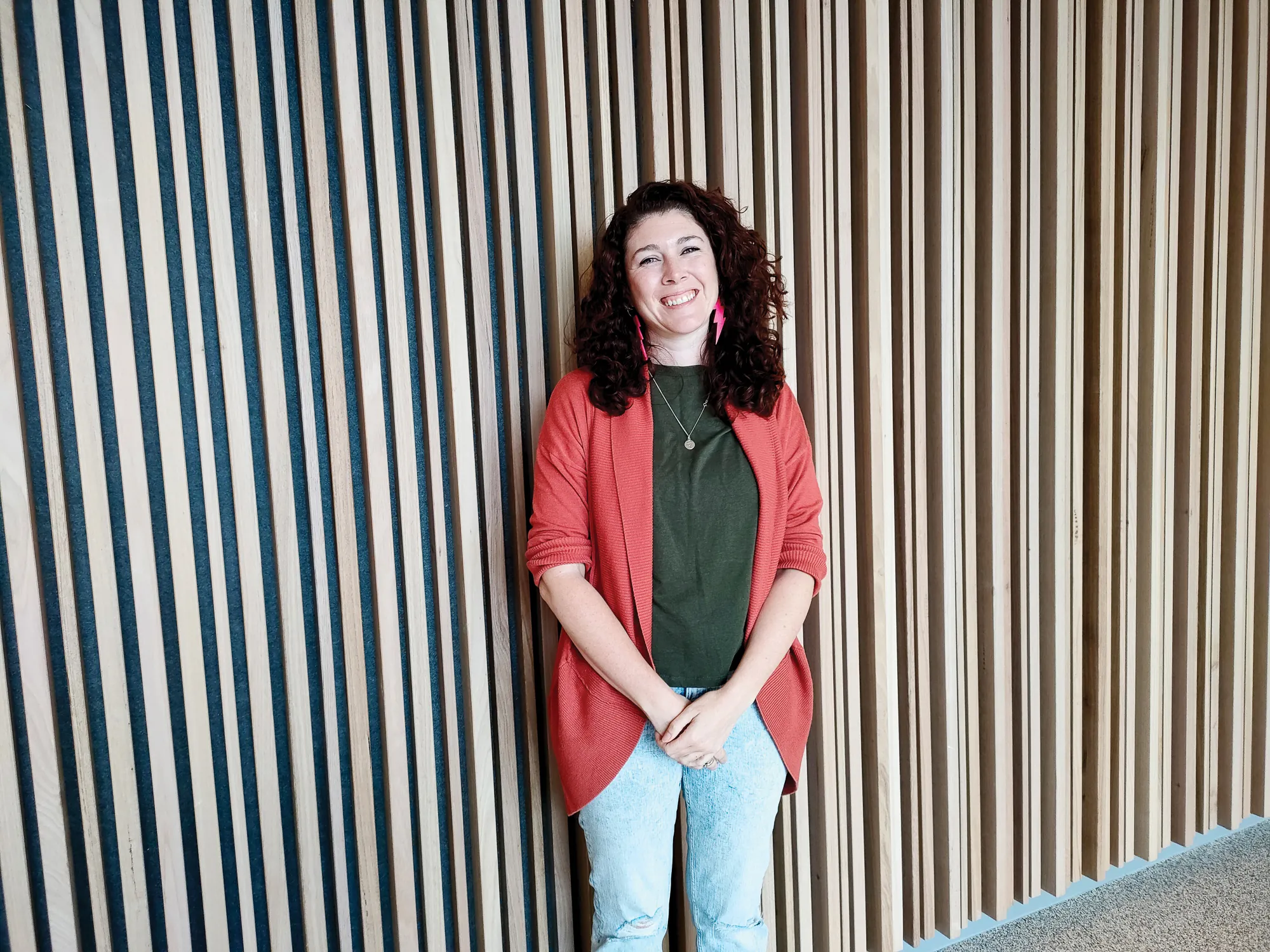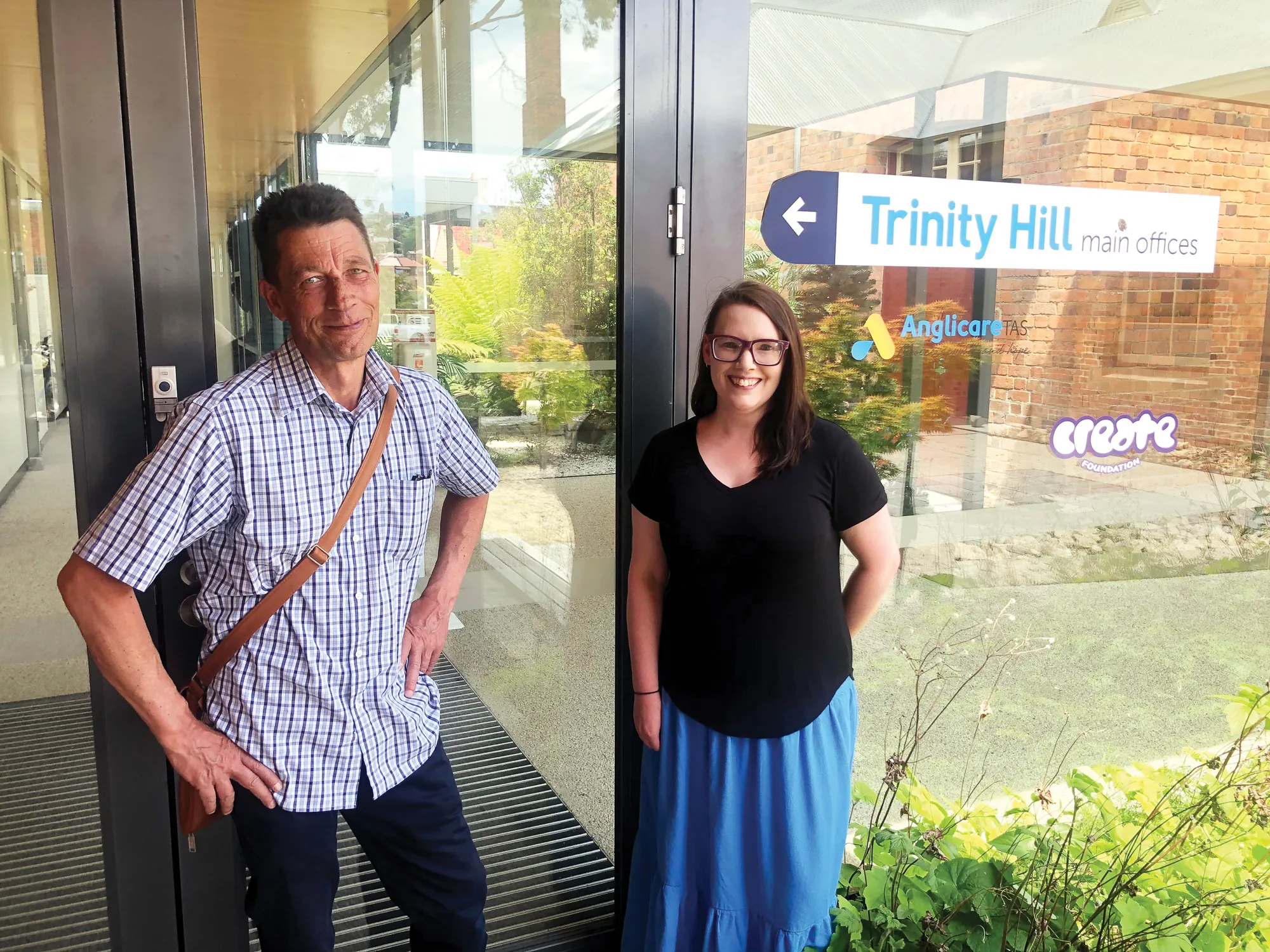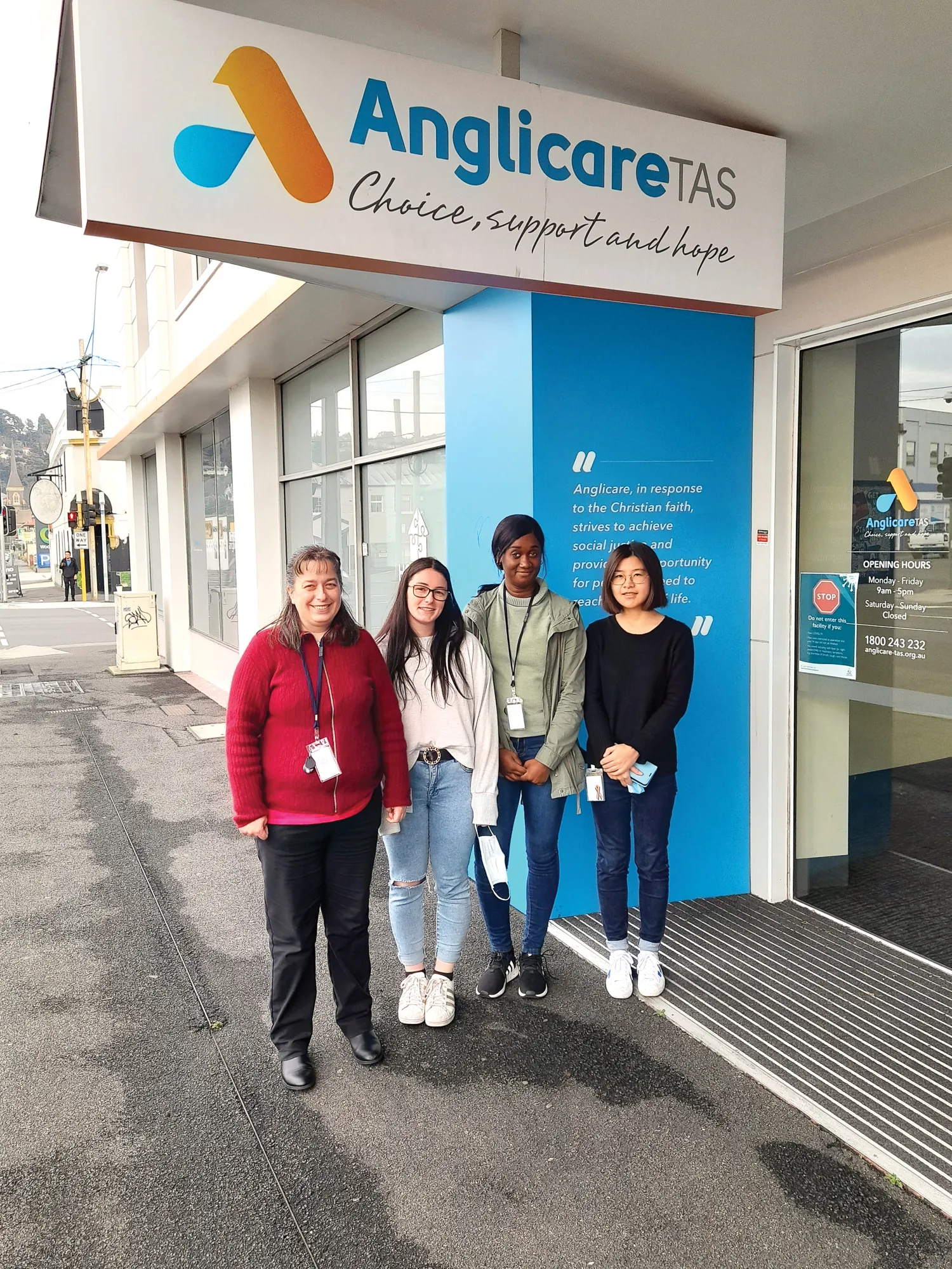Values in Action2021-2022 Annual Report
Our Board Chair – Stephen Carnaby
Anglicare Tasmania’s Christian foundation explains that “we have a clear mission, based on a Christian view of the world and our place in it. The work of Anglicare is done in response to God’s love”.
The concept of justice, one of Anglicare’s core values, is integral. It stems from the character of God who takes up the cause of the powerless and vulnerable. Justice is at the heart of Anglicare’s services and the work of the Social Action and Research Centre.
The COVID emergency has been long and draining. This year Anglicare team members continued to support vulnerable people as our State experienced further waves of the virus. Their care for the community – and each other – has been extraordinary.
We welcomed Dr Emily Isham to the Board in 2021. She chairs the new Quality and Care Governance Committee set up in response to the Aged Care Royal Commission. We also farewelled Dr Bonnie Bonneville and thanked her for her contribution.
We continue to face uncertain times in Tasmania and on the national and international stage. However, I have confidence that the Board, the CEO and the Anglicare team will continue to rise to the challenges.
We have a clear mission, based on a Christian view of the world and our place in it. The work of Anglicare is done in response to God’s love.
Stephen Carnaby
Our CEO – Chris Jones
This year has stretched our team and our resources but what has held fast is Anglicare’s tenacious commitment to our mission.
Throughout the COVID situation, we have worked hard to keep people safe and to continue delivering much-needed services to the Tasmanian community.
The highest accolades at Anglicare Tasmania are our Values in Action Awards. These are awarded to team members who have gone ‘above and beyond’ in demonstrating the Anglicare values of justice, hope, respect and compassion. In the 2021-22 financial year I’ve seen the Anglicare team find countless ways to show these values in the midst of difficulties presented by the COVID pandemic, rising cost of living pressures, and a critical housing shortage.
Anglicare is here for Tasmanians, and I deeply appreciate the support that Tasmanians give to us.
It is a privilege to hear from people willing to share their knowledge, experiences and aspirations. This year, I benefited from ongoing conversations with our Aboriginal advisory group, yarnin up, and the Participant Advisory Council whose members have used Anglicare services. These perspectives help to grow Anglicare’s understanding and keep our Board and management team striving for further improvement.
Anglicare is here for Tasmanians, and I deeply appreciate the support that Tasmanians give to us.
Chris Jones
Our supporters
Parishioners from the St. Lukes Anglican church in Taroona donated generously to the 2022 Winter Appeal.
CEO Chris Jones presented Colleen Kenshole of the Anglican parish of Burnie with life membership of Anglicare in recognition of her efforts in emergency relief distribution over many years.
Several of our parishes continued to build the relationships they had established in the previous year with people who live in supported accommodation with Anglicare. Residents and staff from Bayview Lodge and St. Marks Bellerive enjoyed an outing to the Tasman Peninsula.
Thank you to the many individuals, businesses, schools, parish partners and other organisations who generously donated time, money, food or other gifts this year.
In 2021-22 Anglicare Tasmania received funding from:
Catholic Care Tasmania
Colony 47
Department of Communities Tasmania
Department of Health (Commonwealth)
Department of Health (Tasmania)
Department of Social Services (Commonwealth)
Department of Veterans Affairs
Farrell Foundation
Financial Counselling Australia
Launch Housing
Motor Accidents Insurance Board
National Disability Insurance Agency
Primary Health Tasmania
The Salvation Army
Financial performance
We worked more than 1.1 million hours to deliver close to $82.4 million of services to Tasmanians, an increase of some $3.3 million from the previous year.
Revenue exceeded $81.3 million, up by $1.1 to $1.5 million from the previous year. Our focus on client outcomes led to a greater investment in our people, systems, advocacy and service delivery models. This investment will continue into the next financial year.
Buying local
Anglicare is one of the State’s largest non-government organisations, employing around 1,000 Tasmanians. We made a significant contribution to the Tasmanian economy this year by way of wages and salaries (more than $61 million, up from $60 million in the previous year).
A strong commitment to buying local goods and services wherever possible supports our mission, values and strategic objectives. We spent more than $17 million on goods and services in Tasmania during the year. We estimate that around 900 Tasmanian jobs were supported by this policy. This included jobs in regional areas that have been hit the hardest during the pandemic.
You can find Anglicare Tasmania’s full financial statements on the Australian Charities and Not-for- Profit Commission website.
We work for justice
Anglicare research gives government access to perspectives they might otherwise struggle to hear. It is based on the lived experience of Tasmanians and the insights of those working in frontline services.
We fund and freely share research from our Social Action and Research Centre (SARC), which identifies ways to address gaps in services and systems. During 21-22, we provided briefings to government, served on working groups and committees, and made submissions on draft plans and policies.
The Better, bigger, stronger report called for early interventions and a restructured mental health service to respond to the needs of traumatised children.
Released in April 2022, the research showed how we can better care for children aged 10-17 who are homeless without a parent or guardian. It was based on the insights of young people and professionals from community based and school services.
The report’s recommendations included having more social workers in primary schools, increased training, and flexible, mobile models of care.
“The longer children are homeless, the more likely that their mental health will worsen. We need to do everything in our power to reach out early to support at-risk children and families.” (Dr Catherine Robinson, Social Researcher)
TasCOSS CEO Adrienne Picone speaks at the launch of the Better, Bigger, Stronger report in April 2022.
.
Treasured Lives
The final report of the Treasured Lives project was released in November 2021. It identified ways to assist older people who live with hoarding or challenges maintaining a healthy home.
The research recommended the development of a policy and practice framework, workforce training and a program of supports. The project also prepared a toolkit of useful resources for families and carers.

“Lessons from elsewhere show that with collaboration and appropriate investment, we can deliver the right supports to Tasmanians with these challenges. There are solutions to what is a complex community concern.” (Lindsey Fidler, Social Researcher)

Annual Rental Affordability Snapshot
The annual Rental Affordability Snapshot released in April 2022 showed people on low incomes had little hope of securing a private rental in our State.
Released in the lead-up to the Federal election, it demonstrated the importance of a national plan of investment in social housing. Anglicare called for greater cooperation between all levels of government to improve access to affordable housing.
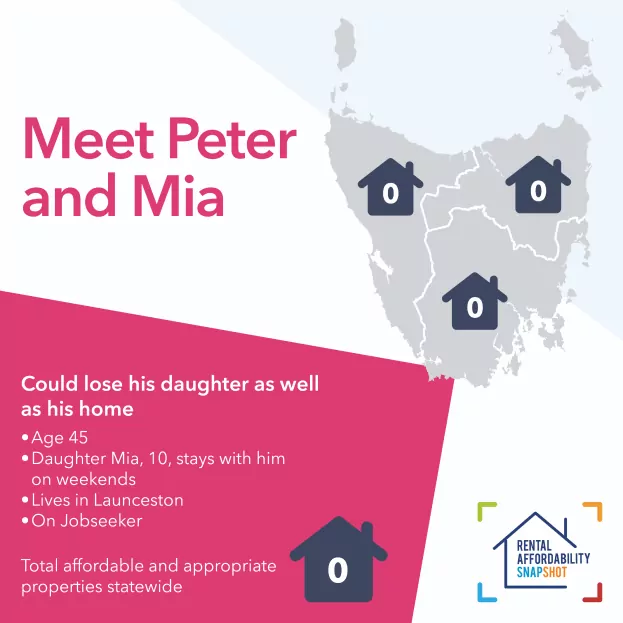
Underinvestment in social housing comes at a cost. The better path is a strong housing system to provide security and stability.
Noel Mundy, General Manager – Housing and Community Services
We are respectful
Anglicare values opportunities to listen to others and keep improving our services.
The Participant Advisory Council (PAC) is one way that people who use Anglicare services contribute to organisational decision-making. CEO Chris Jones met with PAC members in each region in 2021-22. The Council provided advice on a diverse range of matters including service and policy development, and communication materials.
This year, Anglicare also started using a Quality of Life tool to better understand the experiences of people who use services. This included measuring aspects such as social participation, control over daily life, personal safety, food and drink, and cleanliness and comfort.
Inside the organisation, Employee Consultative Committees were opportunities for team members to share their views, raise issues and contribute ideas.
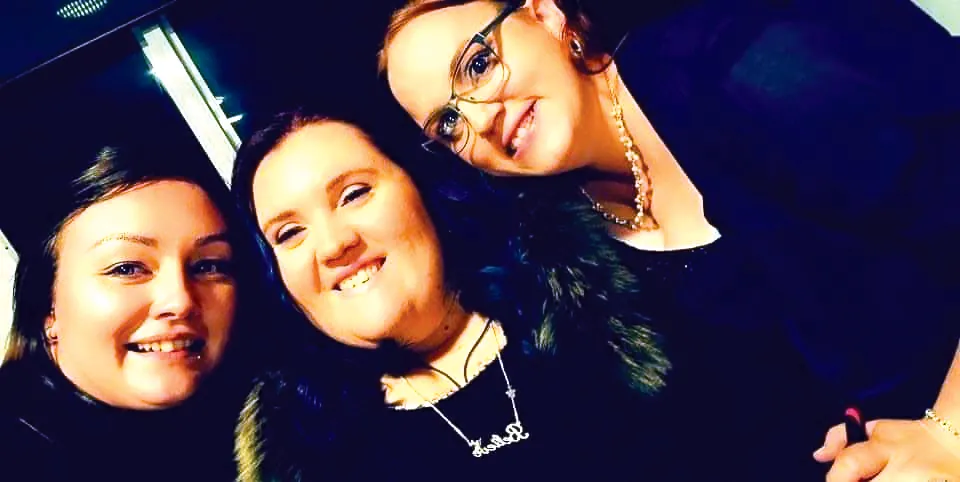
Choice and control
Jac Enniss of Smithton is confident making her own decisions about the disability services she uses.
Since her spine was injured in a car accident 12 years ago, Jac has received supports from Anglicare through the Motor Accidents Insurance Board.
Jac said the first four years after the accident were filled with surgeries, hospital stays and a variety of health challenges but life has now settled into a positive rhythm.
Mum was the one who dealt with the rostering and scheduling of my service – I didn’t want anything to do with it,” she said. “But slowly I took over things from her and today I look after all of it myself. Now she can just be my mum. If an issue arises I feel comfortable and confident that I can handle it myself.”
This year Jac began participating in interview panel sessions to recruit people to her support team.
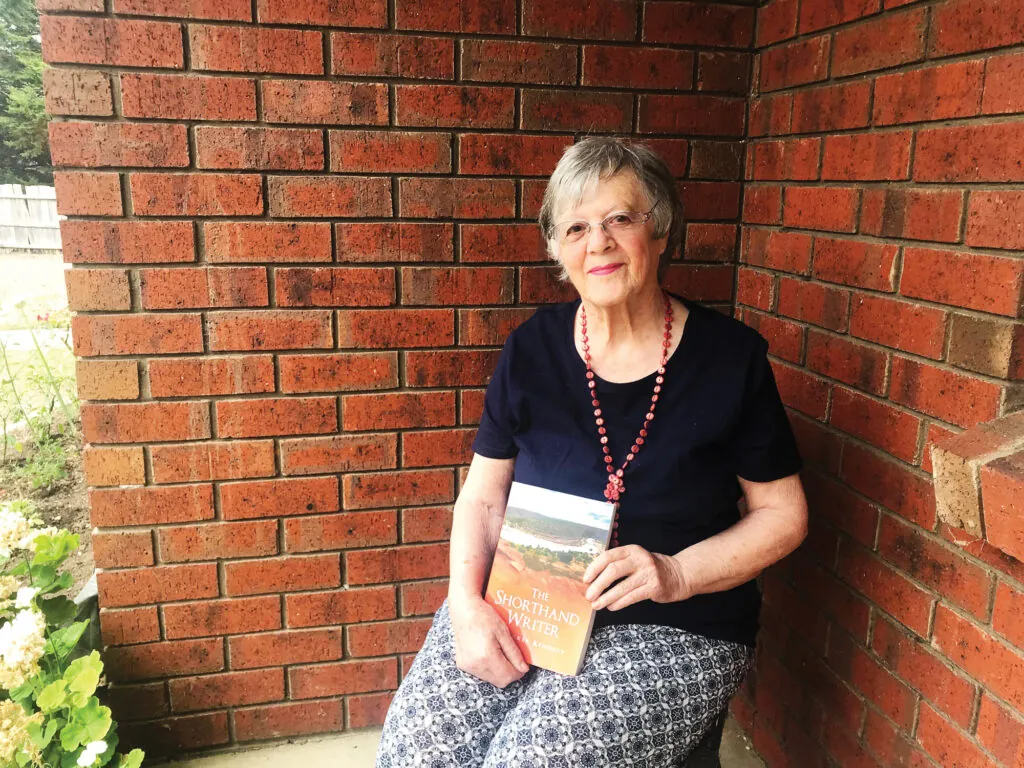
Growing the Aged Care team
Anglicare’s Aged Care Services expanded significantly this year, meeting its target of providing 400 Home Care Packages for older Tasmanians.
Members of the cleaning team are currently upskilling so they can transition into home care worker roles to meet a growing demand.
Valerie Kennedy of Riverside has received a cleaning service from Anglicare for the past 10 years. It gives her time do what she loves best – writing. Valerie had her first book published at age 78 and during the coronavirus restrictions penned a wartime romance.
The best part of my day is walking into my library, knowing I’ve a whole day to write
Valerie Kennedy
We are compassionate
Anglicare works to reduce stigma and to deliver services in a spirit of humility, free from blaming or judging.
During the year we offered information sessions to community groups, schools and businesses on important topics including financial wellbeing, gambling harms, and preventing and treating blood-borne viruses.
In Gamble Aware Week we took the ‘Talk, Share, Support’ message to local communities. More than 200 people attended two events held with the support of the Launceston City Council and the East Devonport Child and Family Centre. We shared the Gamblers Help Family Resource Booklet which explains the warning signs of gambling harm and how to support a family member.
Anglicare also contributed to events for International Overdose Awareness Day and marked Mental Health Week with a series of regional ‘walks for wellness’ in conjunction with local Neighbourhood Houses.
Anglicare’s Needle and Syringe Program team in Hobart marked International Overdose Awareness Day on 31 August with a special display to commemorate Tasmanians who had died.
Connecting people to housing
This year Anglicare responded to more than 8,000 people, including individuals and family units, seeking safe and secure housing.
We delivered the Housing Connect service in the North and North West, providing assistance and information to people who needed help with housing.
An oasis of calm
Anglicare manages the Rocherlea Recovery and Rehabilitation Service, providing mental health supports in partnership with the Tasmanian Government’s Adult Community Mental Health Service.
It offers self-contained living in a tranquil, bushland setting. People who choose to stay at Rocherlea are supported to focus on their health and wellbeing, and to strengthen their independent living skills and community participation.
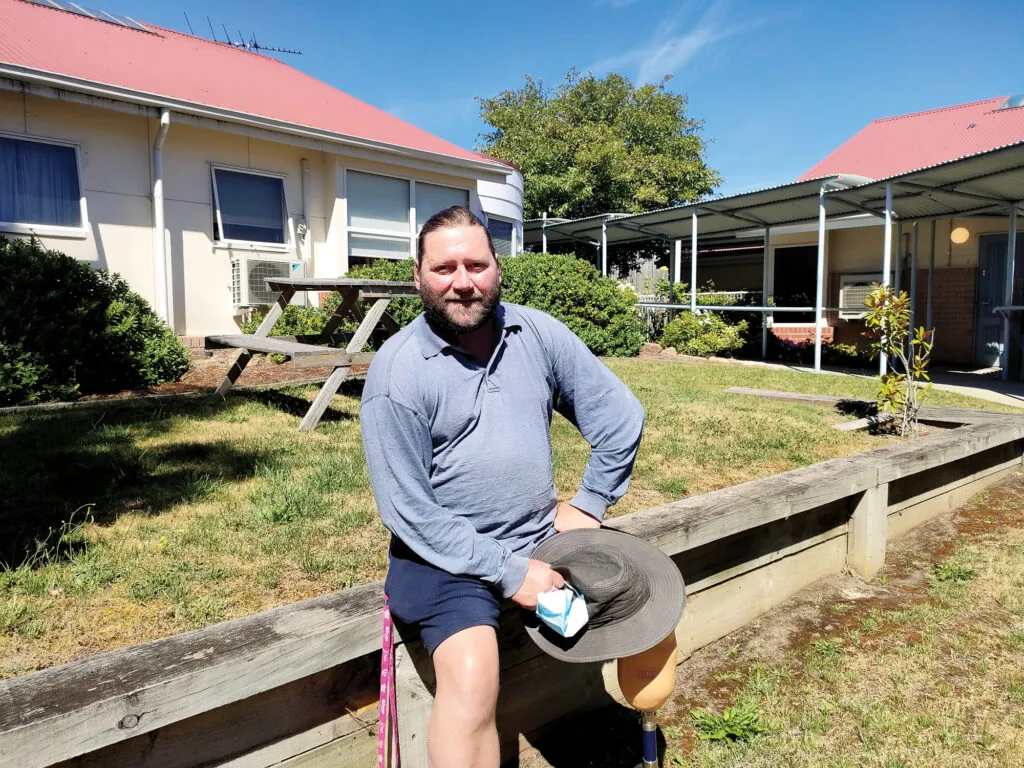
Anglicare housed around 300 adults in supported accommodation this year. David has made Bilton Lodge in Claremont his home: “I’m looking to the future – I’m good,” he says.
We are hopeful
Anglicare believes every person – whatever their age – has the potential to live a life of fullness.
This year we worked with parents eager to give their children a great start in life. We helped young Tasmanians to engage with education and training. And we supported older people to age well and safely at home.
Thirty children graduated from the Home Interaction Program for Parents and Youngsters in Launceston at the end of 2021, to the delight and pride of their families. This early learning program for 4 and 5 year olds helps to prepare children for school.
.
Y2I kicks goals
Anglicare supported 129 young people in the Youth2Independence program (Y2I) this year, with students setting and achieving a range of educational and employment goals.
We managed Y2I supported accommodation at Eveline House in Devonport, Thyne House in Launceston and Trinity Hill in Hobart.
Students were asked to rate their experience of the service and gave it a 4.5 out of 5.
Comments included:
“This service has been really great with my mental health and my anxiety with being around large groups of people.”
“I really like the support workers, they are really kind to me and caring.”
“I know that help is there when I need it. It is the safest I have felt in a long time.”
Twenty-one-year-old Parker learned how to vote this year. It was a good fit with the goal of being an active and responsible citizen in the local community. “To me, voting is an important opportunity to have your say – as well as being a legal requirement.” (Parker)
.
Bonita Raimondo of Burnie was named the recipient of the University of Tasmania’s Anglicare Scholarship for Social Work. The $5,000 scholarship helped Bonita to balance her study, work and parenting commitments.
Anglicare provided financial counselling to young people learning independent living skills. Pictured is financial counsellor Ron Grassl with Senior Youth Development Coach Rebekka Gale at Trinity Hill.
University of Tasmania Social Work students (from left) Lynelle, Kara, Mary and Anna were based in our Launceston office.
The next generation
Anglicare hosted nine final-year Social Work students from the University of Tasmania on a 14-week practical placement.
The students worked with Anglicare practitioners across our Housing and Community Services. Second year Masters student Alex spent time at our Burnie office in the Supported Youth Program and Housing Connect service. He said the experience was “amazing … packed full with training, inductions, activities, resources and actual human interaction. What I find most interesting is the way that everyone supports each other to bring about the best outcomes for people engaging with the services.”
